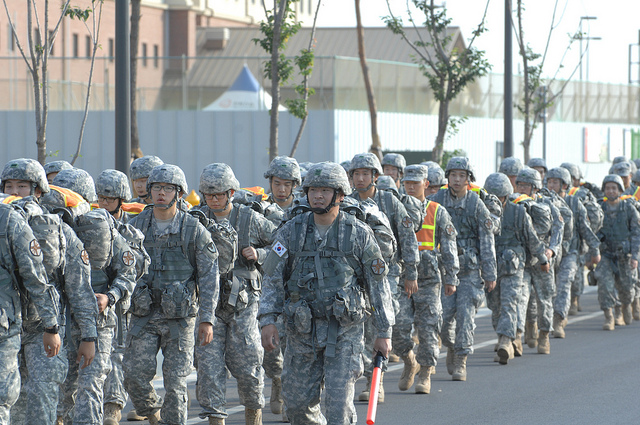I just finished a great book on tech history by Robert Cringely called “Accidental Empires,” which I heard about via former RedMonk Coté. One of the most useful metaphors for me was his comparison of the growth of a company to a military operation. I found it incredibly insightful to help gain an understanding of why certain types of partnerships and relationships work, while others fail, as well as envisioning the entire lifecycle of a product.

The first troops to see battle are the commandos. They’re fast, fight dirty, and do whatever it takes to get the job done. In tech, the commandos are start-ups or anyone with the start-up mindset. These are the people who completely disrupt an existing product or an entire industry. They have some shortcomings though, in their love of adventure over completion — as Cringely puts it:
But what they build, while it may look like a product and work like a product, usually isn’t a product because it still has bugs and major failings that are beneath the notice of commando types. … Sometimes commandos are bored even before the prototype is complete, so it stalls.

After the commandos capture a beachhead, in come the infantry. The regular troops build upon the prototype, test it, refine it into a product, and hopefully make a profit. Their behavior fits their job duties, according to Cringely:
Because there are so many more of these soldiers and their duties are so varied, they require an infrastructure of rules and procedures for getting things done — all the stuff that commandos hate. For just this reason, soldiers of the second wave, while they can work with the first wave, generally don’t trust them. … The infantry actually kill the enemy or drive it away, occupying the battlefield and establishing a successful market presence for the start-up and its product.

After that, the infantry continues pushing on into new territories after the commandos, gradually taking over more and more products and markets. But after the infantry leave, you still need a force to maintain order — the police. This final wave of “troops” hates change, and as Cringely puts it:
They want to fuel growth not by planning more invasions and landing on more beaches but by adding people and building economies and empires of scale. AT&T, IBM, and practically all other big, old, successful industrial companies are examples of third-wave enterprises. They can’t even remember their first- and second-wave founders.
The critical piece of this metaphor is that the danger lies in the transitions and interactions between various types of troops. Founders tend to be commandos, and they often can’t imagine running mature, “boring” companies. Cringely claims that the best leaders are second-wave infantry who know how to gather and motivate commandos while still relating to the third-wave police. Trying to pair commandos and police simply doesn’t work; you need an intermediary to provide a buffer between the two groups, like a general who can create the master plan for not just a battle but an entire war.
Disclosure: IBM is a client.



neilwlevine says:
July 26, 2012 at 6:40 pm
Simon Wardley uses the terms colonizers, settlers and town planners to describe the exact same concepts. He’s argued for a while that large companies should structure themselves along those lines rather than having a single sales team, a single development team etc.
Mat Keep says:
July 27, 2012 at 11:41 am
Another analogy I’ve heard used is “Explorer / Settler / Industrialist” Very often applied to team members, and a means to map the right sorts of task to the right skill set
Heroku Waza: Art and technique in software and beyond – Donnie Berkholz's Story of Data says:
March 13, 2013 at 8:58 am
[…] keynote of the conference. It was a nice talk on stable vs volatile people (along the lines of my post comparing tech personalities to commandos, infantry, and police). After that was lunch, followed […]